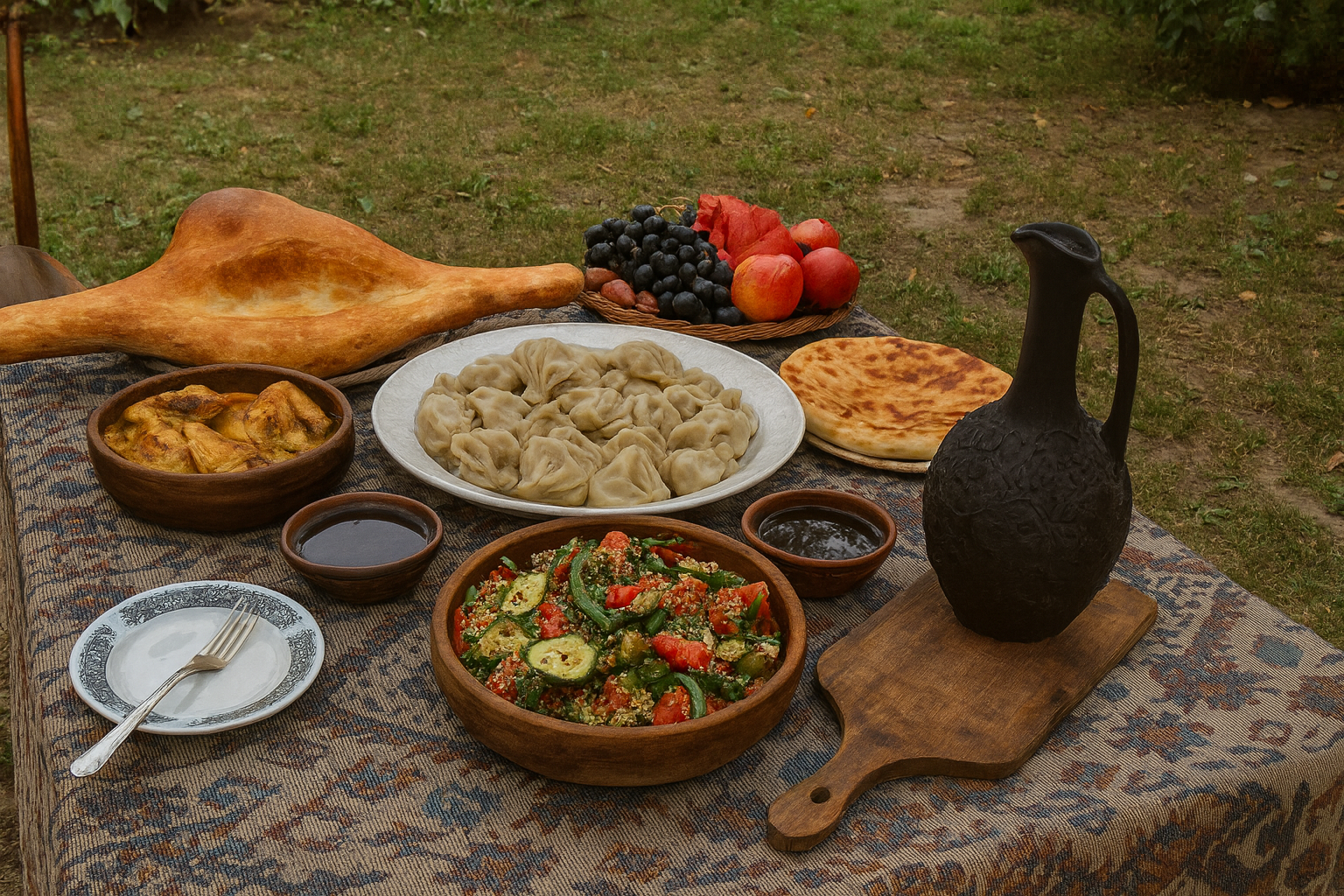
Georgia is a dream destination for culinary travelers, and anyone visiting the country quickly discovers that its food culture is not just a part of life—it is truly the heart of everyday Georgian hospitality. While popular restaurants in Tbilisi and Batumi introduce visitors to classic dishes like khinkali, khachapuri, mtsvadi, and pkhali, the real charm of Georgia’s cuisine lives in local, simple, often family-run places that celebrate recipes handed down through generations. Travelers looking for authentic taste should start by exploring traditional markets such as Tbilisi’s Dezerter Bazaar, Kutaisi’s Green Market, and Telavi Market in Kakheti, where vendors proudly offer homemade cheese, churchkhela, mountain herbs, honey, dried fruit, and freshly baked bread. The essence of Georgian cuisine also reveals itself in wine regions like Kakheti, where families still produce qvevri wine using ancient methods, and in mountain regions like Svaneti and Racha, where dishes have distinct local identities. Visitors who genuinely want to understand the Georgian palate should look for small eateries with handwritten menus, countryside guesthouses where families prepare dinner using their own produce, and rural bakeries where you can watch bread being made in a tone oven. These are the places where food becomes a story—one that travelers don’t just taste, but truly feel.
To deepen the experience, culinary tourists should explore Georgia’s regional diversity, because every corner of the country has its own spirit, ingredients, and techniques. In Samegrelo, spicy and richly flavored dishes like elarji and gebjalia show just how creative Georgian cuisine can be. In Adjara, where mountain and sea influences meet, guests enjoy borano, Adjarian khachapuri, and freshly caught fish prepared in simple but unforgettable ways. Racha offers the famous smoked ham “Lori,” bean dishes, and hearty stews that reflect the mountain lifestyle. Meanwhile, in mountainous Tusheti, traditional cheese, khavitsi, and local herbal teas bring travelers even closer to ancient culinary traditions. Street food is another important part of the journey—try fresh lobiani in bakeries, churchkhela on village roads, and local sweets in weekend markets. Many travelers also enjoy attending culinary masterclasses, where they learn to make khinkali, bake puri, or craft churchkhela themselves. The beauty of culinary tourism in Georgia is that it welcomes everyone with warmth: whether you’re tasting homemade wine at a family vineyard, sharing bread with villagers, or enjoying a slow lunch in a tiny mountain café, the flavors tell the story of a country where food means culture, connection, and genuine hospitality. For visitors seeking the “real taste,” the most rewarding moments come not from fancy restaurants but from simple, heartfelt experiences shared with locals—because in Georgia, the true flavor is always found where people cook with love.






 Deutsch
Deutsch
 русский
русский
